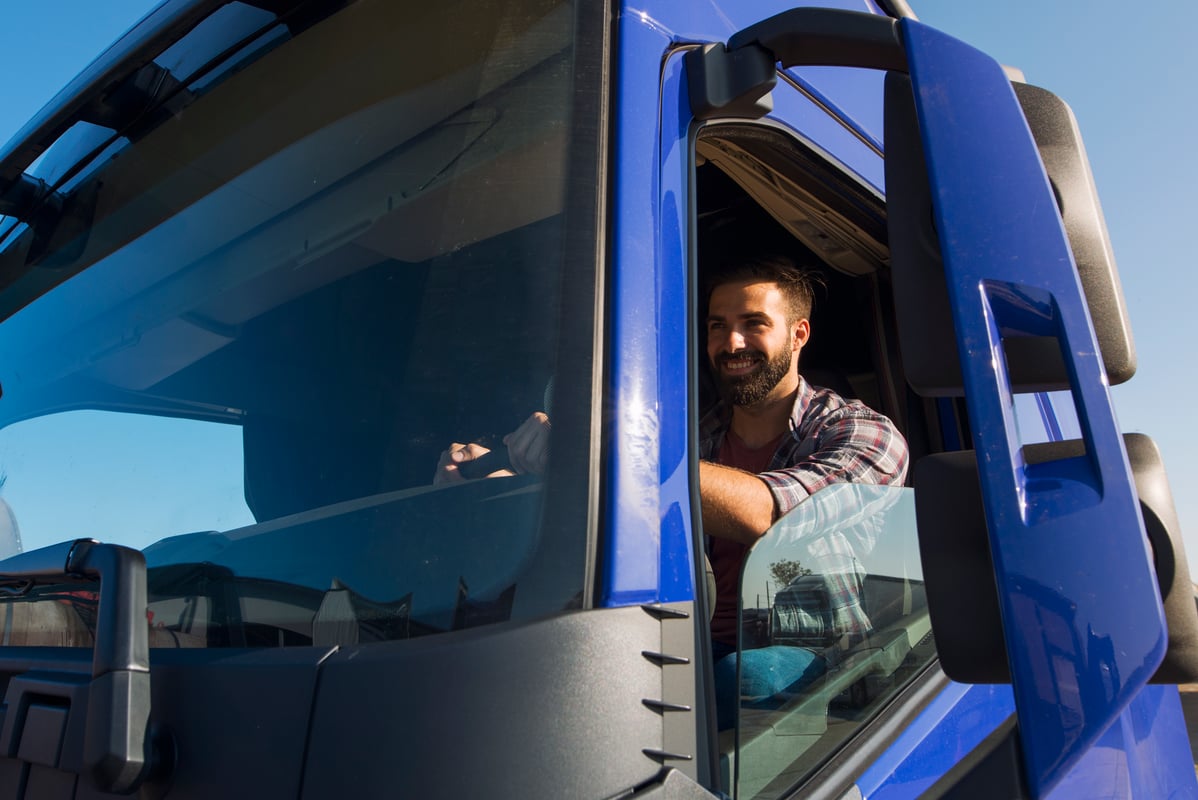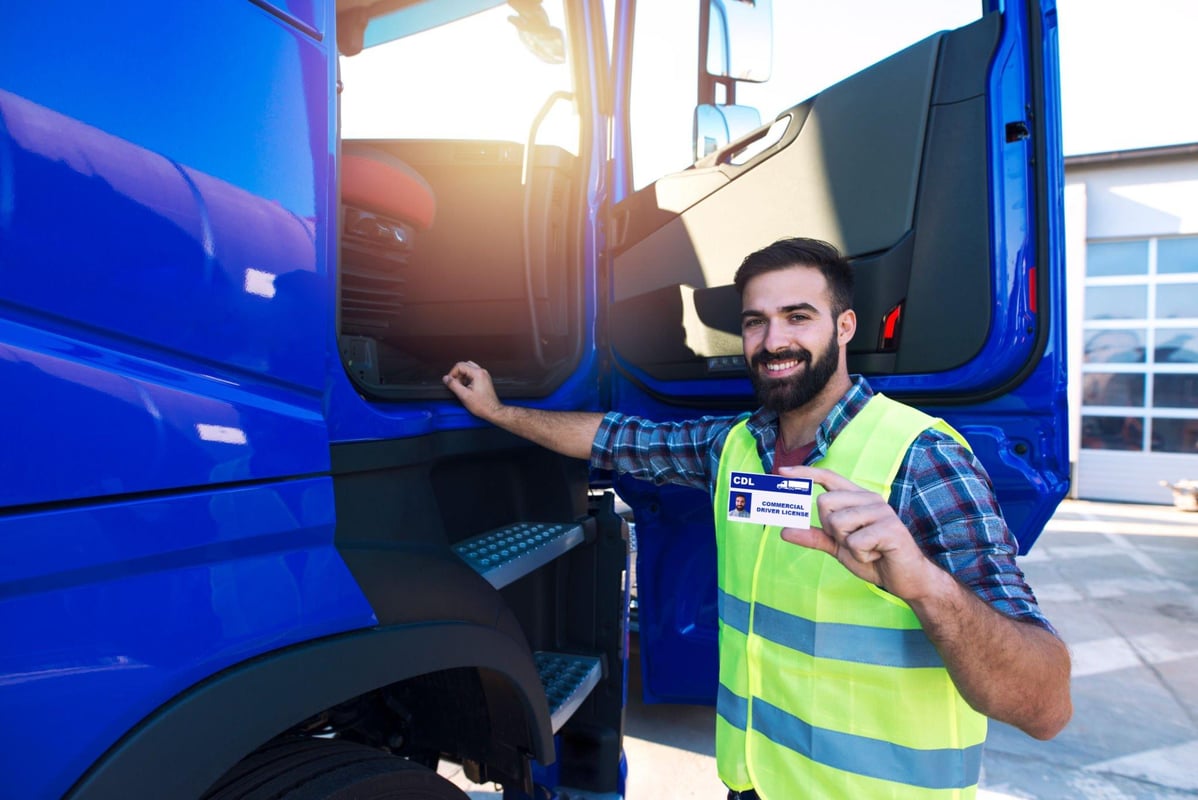CDL College

Classes from CDL College
CDL Doubles and Triples Endorsement

This section covers pulling double triple trailers, coupling and uncoupling, inspecting doubles and triples, and checking air brakes. The section has information you need to pass the CDL knowledge test for driving safely with double and triple trailers. It tells about how important it is to be very careful when driving with more than one trailer, how to couple and uncouple correctly and about inspecting doubles and triples carefully.
CDL Permit Classes-Combination Vehicle Endorsement

This section provides information needed to pass the CDL written tests for combination vehicles (tractor-trailer, doubles, triples, straight truck with trailer). Combination vehicles are usually heavier, longer, and require more driving skill than single commercial vehicles. Drivers of combination vehicles need more knowledge and skill than drivers of single vehicles.
Air Brakes Endorsement

This section will inform you about air brakes. If you want to drive a truck or bus with air brakes or pull a trailer with air brakes, you need to study this section.
Air brakes use compressed air to make the brakes work. Air brakes are a good and safe way of stopping large and heavy vehicles but the brakes must be well maintained and used properly. Air brakes are really three different braking systems in one. There is a service brake, a parking brake and an emergency brake.
The service brake system applies and releases the brakes when you use the brake pedal during normal driving. The parking brake system applies and releases the parking brakes when you use the parking brake control. The emergency brake system uses parts of the service and parking brake systems to stop the vehicle in the event of a break system failure.
Online CDL Course: Tank Vehicle Endorsement

A tank endorsement is required for certain vehicles that transport liquids or gases. The liquid or gas does not have to be a hazardous material. A tank endorsement is only required if your vehicle needs a Class A or B CDL and you want to haul a liquid or liquid gas in a permanently mounted cargo tank rated at 119 gallons or more or a portable tank rated at 1,000 gallons or more.
CDL Permit Classes -Hazardous Materials Endorsement

This section covers the intent of the regulations, bulk tank loading, unloading and marking, driver responsibilities, driving and parking rules, communications rules, emergencies, and loading and unloading. Hazardous materials are products that pose a risk to health, safety, and property during transportation. The term often is shortened to hazmat, which you may see on road signs or to HM in government regulations. Hazardous materials include explosives, various types of gas, solids, flammable and combustible liquid, and other materials. Because of the risks involved and the potential consequences these risks impose, all levels of government regulate the handling of hazardous materials.
Class B CDL Permit Training

Ready for your Class B CDL Permit? Let's do this. The lessons are listed in order. Study each lesson and then take the written test at a Motor Vehicle office. Good Luck! What type of vehicle requires a Class B CDL? Any single vehicle with a GVWR of 26,001 pounds or more. A driver with a CDL B may NOT tow another vehicle that has a GVWR more than 10,001 pounds. Come and visit us for information.
In person Commercial Driver's License Class A (CDL-A) Classes

CDL College's Commercial Truck Driver class is an excellent opportunity for those looking to become professional truck drivers. The class covers all the necessary topics to prepare students for the CDL exam, including vehicle inspection, cargo handling, and defensive driving. The class is offered in Denver, CO and provides students with the necessary skills to become a safe and successful truck driver.
In person Commercial Driver's License Class B (CDL-B) Classes

CDL College proudly offers its comprehensive Commercial Driver's License Class B (CDL-B) program, designed to prepare aspiring heavy vehicle drivers for a rewarding career in the transportation industry. The program prioritizes equipping students with essential skills, emphasizing hands-on experience, rigorous training, and expert instruction. CDL College embraces modern teaching methodologies to ensure graduates are job-ready, focusing on real-world driving scenarios, regulatory compliance, and safety measures. With a stellar reputation, high graduate success rates, and a commitment to delivering complex information in an understandable manner, the program provides a reputable and reliable choice for vocational education in the transportation field.
About school
CDL College is a driving school located in Denver, CO. They offer a variety of programs related to commercial truck driving, including training for truck drivers, bus drivers, and more. Their experienced team of instructors is led by an experienced director, providing students with the guidance and knowledge they need to successfully complete their program.
In the Commerce City, CO area
7505 Dahlia St, Commerce City, CO 80022